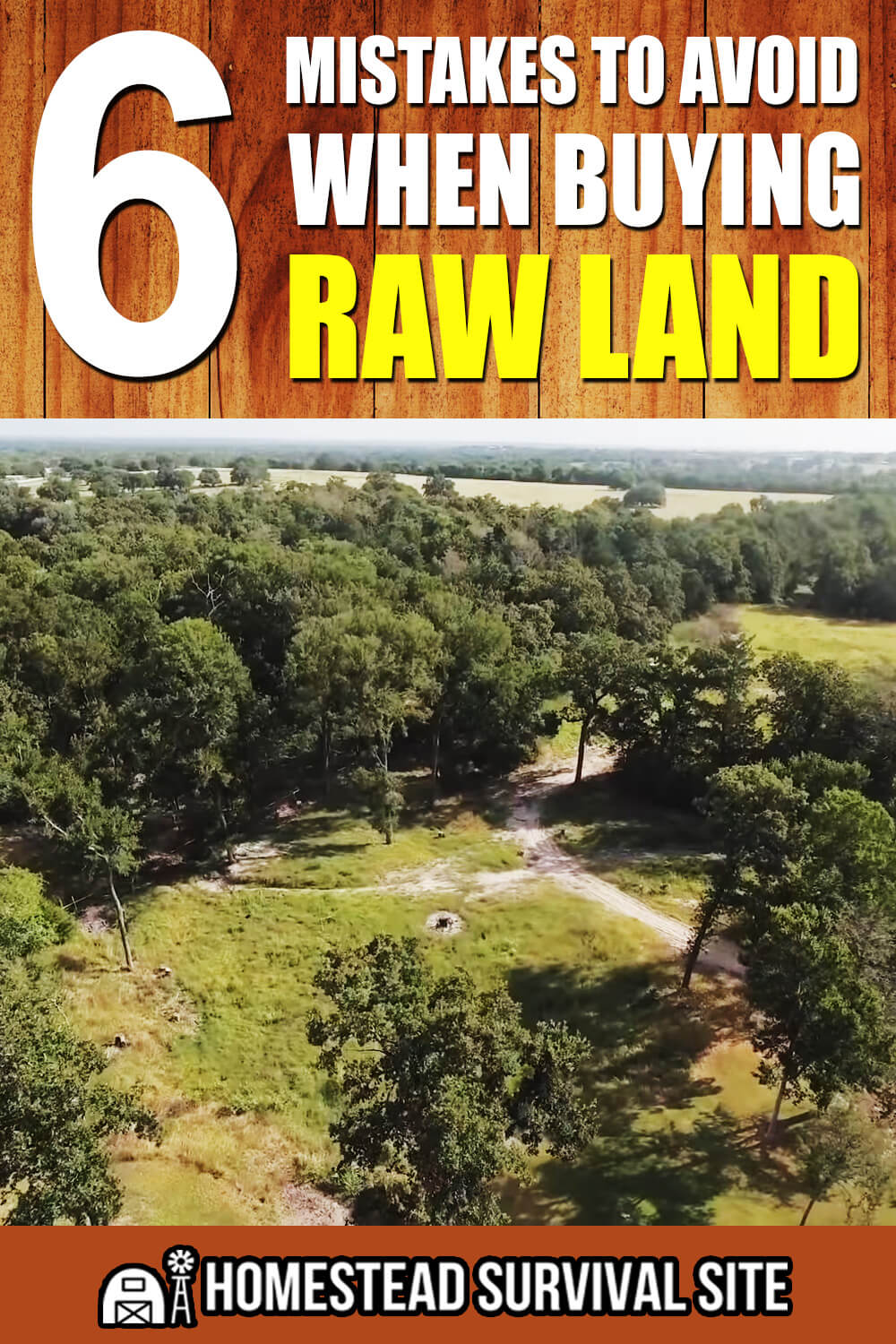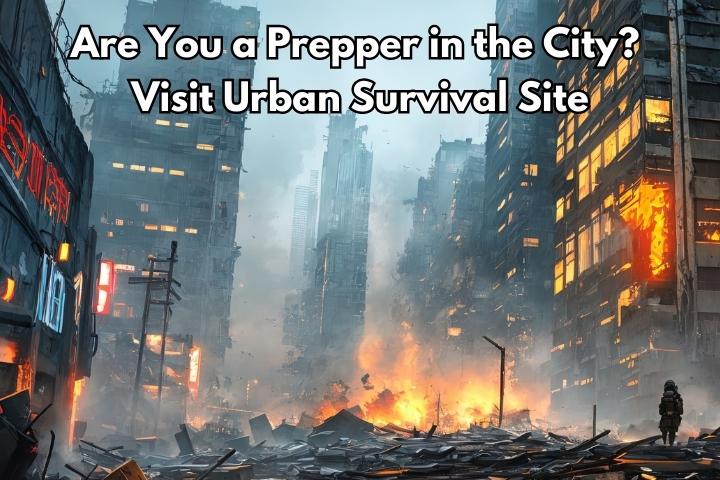When purchasing property to build a homestead, the single most important factor to take into consideration is the land itself. Yes, the house is important also, but in order to live a truly self-sufficient life, the land is more important.
Want to save this post for later? Click Here to Pin It On Pinterest!
This video by Better Life Together goes over some major mistakes that should be avoided when purchasing raw land for a homestead. Here's his list:
1. Buying Land That Is Too Close To (Or Too Far From) Amenities
You don’t want to buy property that is too close to everything (stores, restaurants, etc.), but you don't want property that's too far from everything, either. Especially if you have kids. Don’t be too close, and don’t be too far.
2. Buying One Of The First Properties You Look At
This is real estate, and you need to be careful that you take a look at many different properties and then make an informed decision.
3. Buying Property Without Trees
Trees provide excellent value. They give badly needed shade from the sun and could potentially even hide your property from people driving by.
4. Not Researching Your Property First
Do not buy property that is a bad investment. You really need to do research the property online and look for something that has potential. In other words, look for property that will increase in value over the long term. Looking for property that is undervalued is ideal.
5. Buying Property With A North-Facing Slope
If you have a slope that is facing north, the sun in the winter is going to face away, and not giving you the sun that you need. If you are going to have a slope, the best kind of slope to have will be facing south or east. This will give you nice, gentle sun in the morning.
Want to start a homestead but not sure how?
Sign Up & get a FREE book, "How To Homestead No Matter Where You Live."
6. Buying Property With Excessive Government Regulations
Buy property that does not come with excessive government regulations. There are properties that are unrestricted and unincorporated. A good rule of thumb is to buy land that is outside of city regulations but still inside of county regulations.
For a much more detailed discussion, check out the full video below:
Like this post? Don't Forget to Pin It On Pinterest!



It should have a well on the property or at least you should check around the area to see how deep the wells are. Also have the property subject to a percolation test to make sure you can put a septic system in.
Look closely on satellite maps and make sure is no strange things nearby. Check for landfills, commercial pig farms, paper mills, etc., that would give you bad smells. Check that no big farms aren’t too close, so you won’t get glyphosate spray blown on to your organic property!
Water? Rather important.
First thing to do: Get a copy of a flood zone map. Research FEMA and local published records and events of flooding.
Study Houston. Many homes that were not in a flood zone, flooded. You need to study the water flow to determine the best and safest location for you long term investment.
What about selling raw land any tips! I have property that’s 15 minutes from two small towns one East of property one West of property. Also an hour away from 3 major universities and three city’s in state I live.
Actually rule number 1 is: DO NOT buy any land without first going to the local USDA office of the Natural Resources Conservation Service and looking at their soil survey maps and the associated tables. The tables will reveal potential problems such as flooding risks, soil features which may limit the ability to build a house on the property, septic tank leach field limitations, etc. and etc. I can’t tell you how many times starry eyed people came in to the office wanting soils information AFTER they had bought land and found out they were in for a lot of problems when they tried to develop their property.
All great caveats in the comment section. I would add that you need to LOVE your land because you will be investing your money as well as your heart and soul plus your future.
In my state and county if you have 10+ acres of land (minus the land your home is on) and raise a crop (hay?) on it you can get an Agriculture exemption. For us, this lowers our tax bill from +/- $2500 year to $700. You do have to have to to cut and bale the hay, which we sell to offset the cost of baling.
You also want acreage that has utilities such as water, sewer and electricity. Out here it’s $4000 to get on the co-op water system and $6000 to install a septic tank and $25000 to dig a depth well. The local electricity co-op will place a meter within a 150 feet of their line but further than that is your burden, same for telephone. Check the availability of internet as well, satellite internet can be expensive. We have a company that offers Wi-Fi internet but it’s twice as expensive as in the city.
If it’s not fenced add $2-3 /ft for materials, more if you hire someone. We’re 50 miles from a major metropolitan area and 5 miles from the nearest town. There are coyotes, hogs and deer out here, if you have any livestock (cows, goats, chickens etc.) you want a good fence. Ours is 4X2 no-climb horse fence ($+++). I recently bought 1400 ft at $1 per foot, just fencing wire no posts.
If it’s truly raw land and you have notions of building a house off the road don’t for get the cost of putting in a rock road.
My husband and I are planning to buy a land where we may have our home built, which is why we’re currently looking for a land surveyor that may check the property’s condition. Well, you’re right about the importance of choosing a property that has a lot of tress in it because this may help increase its value. I also agree with you that it would be best to check if the chosen lot’s value will increase over time. meridiangeomaticsatl.com/services.html